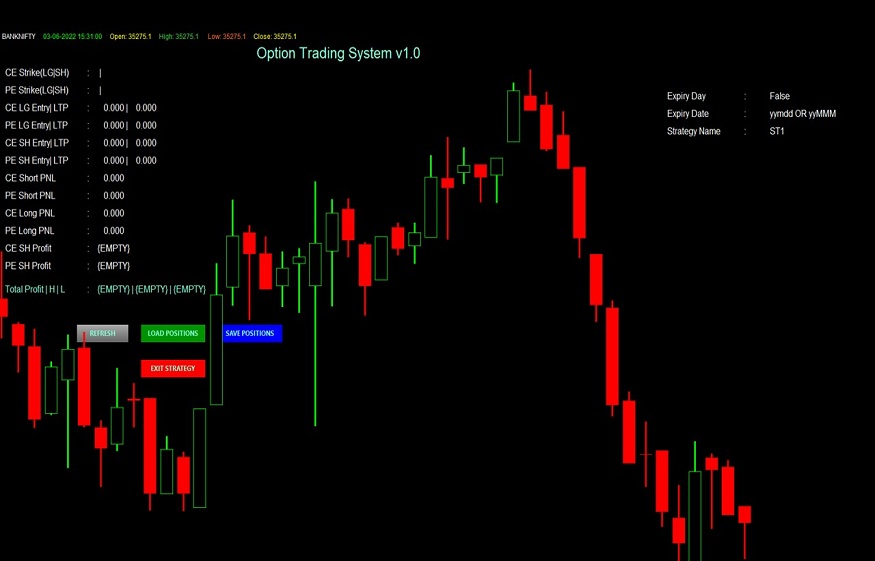
Algorithmic trading in the UK, also known as automated trading or black-box trading, is a form of electronic financial trading that uses computer algorithms to determine when and how orders are placed in the market. By automating order execution, it is possible to reduce costs associated with human error and increase the speed of trades. Algorithmic options trading has become increasingly popular in recent years due to its ability to execute complex strategies quickly, accurately, and consistently. This article will provide an overview of algorithmic options trading for beginners, including an exploration of what it is, how it works, and how to get started.
What is algorithmic options trading?
Algorithmic options trading involves using computers to analyse historical and current market data, identify trading opportunities, and execute trades automatically. This process allows traders to take advantage of small market price movements without manually monitoring the markets or placing orders whenever a trade setup appears. It also enables traders to employ complex strategies that would be almost impossible to execute manually.
How does algorithmic options trading work?
Algorithmic options trading is based on computer algorithms programmed to analyse past and present market data, detect potential trading opportunities, and then place orders automatically if certain conditions are met. These algorithms can consider factors such as technical indicators, candlestick patterns, volumes of buyers/sellers in the market, pricing discrepancies between different exchanges and more. Once the algorithm is programmed with the desired parameters, it can run in an automated mode in which trades are placed automatically without any intervention from the trader.
What are some benefits of algorithmic options trading?
The primary benefit of algorithmic options trading is its ability to execute complex strategies quickly and accurately. It also allows traders to take advantage of small price movements that may not be visible or accessible for manual traders. Additionally, it eliminates the need for manual monitoring and order placement, freeing up time to focus on other aspects of trading, such as risk management and strategy development. Finally, algorithmic options trading can reduce costs associated with slippage, market impact, and commissions when compared to traditional methods of manual order execution.
What are the risks of algorithmic trading?
Like any form of financial trading, algorithmic options trading carries its own set of risks. These include the risk of overtrading (placing too many trades and potentially taking excessive losses), market manipulation (when algorithms are used to manipulate prices by large traders or exchanges), and software errors (which can cause unexpected losses).
Traders should consider that only some algorithmic strategies may be suitable for volatile markets, as they may need to respond quickly to rapid changes in prices or volume. As such, UK traders must understand the risks associated with algorithmic trading before starting. Novice traders should use the best online stock broker in the UK before attempting trading strategies.
What other types of trading methods are used by UK options traders?
In addition to algorithmic options trading, UK options traders may use several other methods.
Spread trading
Spread trading is an overall strategy used by many traders in the UK. Spread trading involves taking two or more positions on related markets simultaneously to capitalise on small-scale price discrepancies between them. This method can benefit short-term or day traders looking to take advantage of smaller price movements.
Option arbitrage
Another method employed by UK options traders is option arbitrage. Arbitrage involves buying an option in one market and proceeding to sell in another at a higher price. By doing this, the trader can profit without exposing themselves to additional risk. For instance, they may buy an option in the US and sell it in Europe for a higher price due to differences in exchange or national interest rates.
Delta hedging
UK options traders may also choose delta hedging as part of their trading strategy. Delta hedging is a risk management technique used to reduce exposure to certain types of market volatility. It involves taking offsetting positions: buying an option when its implied volatility increases and selling one when it decreases. By doing this, traders can limit their upside potential and protect against significant losses should volatility swing back the other way.
The bottom line
Algorithmic options trading has become increasingly popular in recent years due to its ability to execute complex strategies quickly, accurately, and consistently. By automating order execution, it can reduce costs associated with human error and increase the speed of trades. However, traders need to understand the risks associated with algorithmic trading before getting started. With a good understanding of how algorithmic options trading works and an appreciation of its benefits and risks, traders can use this form of automated trading to take advantage of small market price movements and enhance their chances of success.

